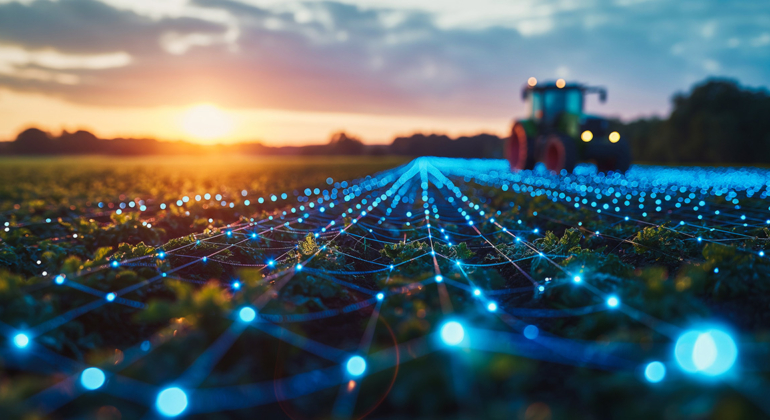Our Sustainable Living team spends a lot of time thinking about the upcoming trends in sustainability, and as it turns out, consumers do too. Nearly 85% of consumers research online before making a purchase. Today’s consumers go beyond simple research into the best product—they explore everything from sustainable and circular packaging to company investments in sustainability at all levels of the supply chain.
Sustainability encompasses much more than “green” practices. It covers the entire spectrum of ecological, human and economic health. Naturally, as we kick off 2022, we expect to see significant shifts and ongoing trends in this broader view of sustainability for the savvy consumer.
Digging Deeper on Sustainable Company Practices
Increasingly, consumers are digging deeper into company practices before making buying decisions. Consumers want to see strong statements on sustainability issues from racial and social justice to climate-friendly targets—and see those statements followed by actions. Overall, 71% of Americans want companies to help them take more sustainable actions in their everyday lives, and 83% of millennials want brands to align with their values.
We’ve truly reached a landmark moment in the fight against climate change, and consumers demand that corporations play their part. That all starts on the policy side of the house to support those efforts. For the first time, the COP26 climate deal highlights fossil fuel consumption as a driver for climate change—which seems small, but it is a big statement for more than 100 world leaders to agree to—and it calls for net-zero strategies tied to science-based targets. We’ve also seen significant strides at the state level, as California becomes the first state to require solar power and batteries in new commercial structures, making it easier for businesses to jump on the solar train.
On the corporate side, 59% of companies plan to increase their renewable energy usage soon. In 2021, corporations like Hershey and Driscoll’s Berries invested in renewable energy, and we’ll see more medium to large companies follow suit in 2022.
Consumers also care about corporations’ social impact, and that influences where they spend their money. Consumers will continue to demand action on company statements, pushing for ongoing action on Black Lives Matter commitments beyond Black History Month social posts. For example, McDonald’s recently announced a $250 million investment to diversify its franchisee base to better reflect the communities it serves. As companies continue to build socially responsible actions into their business models, we’ll see more announcements like this.
Full Circle: More Than Just Recyclable Packaging
We’ve seen companies make the shift to more sustainable packaging, eliminating plastics and striving to use recyclable materials. But the push for a circular economy will be a theme of 2022. Why recycle when you can reuse?
What started as pop-up shops where consumers could bring in used containers and jars to fill up on products like shampoo and laundry detergent has now reached mainstream consumers. At the beginning of 2021, Dove announced its new deodorant would come in a refillable stainless steel case, making it easier for consumers to achieve their zero-waste goals without making their deodorant at home.
What’s needed to shift brands to reusable packaging is a convenient and straightforward method for in-store shopping and packaging return. Loop is forming partnerships left and right to accomplish just that. This fall, Loop launched its first in-store pilot program in Oregon, where participating brands offer reusable containers that consumers can return right in the store. Loop also teamed with Tupperware to bring reusable packaging containers to Tim Hortons in Canada. As reusable packaging scales, consumers will have more options to reduce their waste.
Sustainable Agriculture: From the Ground Up
Kernza has been the talk of sustainable agriculture for years now. With deep roots and the ability to regrow on its own, Kernza is the perennial grain of our climate future that prevents soil degradation and mimics a truly natural ecosystem. But poor crop yields and a small farming base have kept Kernza from going big. Patagonia Provisions (yes, Patagonia) has been using it to make sustainable beer for the past few years. General Mills even jumped on board but could not take the next step due to poor crop performance.
But 2022 might be the year for Kernza, as more farmers explore climate-friendly crops and researchers, particularly at the University of Minnesota, make strides in improving yields.
We’ll also continue to see other innovations in sustainable farming. Check out our blog on vertical farming for more details.
Nothing’s Impossible When You Eat Plant-Based
Nearly 18% of our emissions that contribute to the climate crisis come from livestock. Reducing meat consumption by even one-quarter will significantly lower greenhouse gas emissions.
Plant-based proteins are definitely a trend, but we’ve recently seen them reach mainstream chains like Taco Bell and Panda Express, and even fast-food burger giants are duking it out, with the McDonald’s McPlant and the Burger King Impossible Whopper.
Impossible Shops, the first-ever delivery-only, plant-based restaurant, opened in late 2021 in several markets. We’ll see these options expand with more plant-based options in national chains and local restaurants, as well as different “meat” options in stores—a plant-based protein for every night of the week.
So, What’s Next?
In 2022, we’ll continue to see consumers drive demand for sustainable products produced by sustainable (in every sense of the word) companies. Pressure must come from all sides to help us meet goals set at COP26 and rise to the occasion on social responsibility. Consumers, corporations, policymakers and farmers must all do their part, and the first step will be acting on these and additional sustainability trends as part of our New Year’s resolutions. What’s your sustainable New Year’s resolution?


